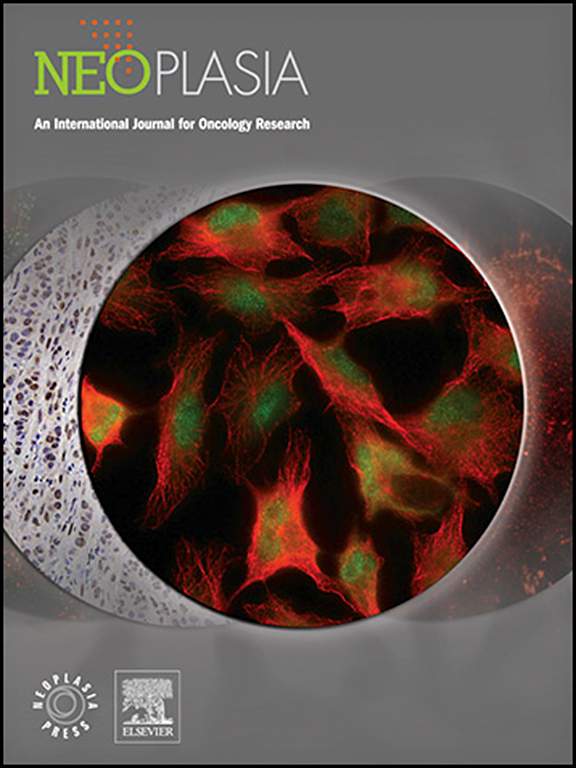肿瘤浸润性免疫细胞在结直肠癌中的作用
IF 4.8
2区 医学
Q1 Biochemistry, Genetics and Molecular Biology
引用次数: 0
摘要
结直肠癌是一种异质性的恶性肿瘤,在病理生理机制、免疫反应和浸润、治疗反应和临床预后方面存在差异。许多研究强调了肿瘤浸润免疫细胞在不同类型结直肠肿瘤中的临床相关性,但在细胞类型定义和细胞识别策略上存在差异。当涉及几种免疫亚型时,免疫特征的区分尤其具有挑战性,但对于确定肿瘤微环境中新的细胞间机制至关重要。在这篇综述中,我们汇编了肿瘤浸润免疫细胞的人类和非人类研究,并概述了免疫亚型、它们的病理生理功能以及它们在结直肠癌中的预后作用。我们讨论如何区分免疫信号可以指导免疫治疗靶点和个性化治疗方案的发展。我们在整个免疫谱中分析了全面的人类蛋白质生物标志物谱,以提高肿瘤研究的可解释性和应用,并最终增强结直肠癌患者的免疫治疗和推进精准医学。本文章由计算机程序翻译,如有差异,请以英文原文为准。
Tumor-Infiltrating Immune Cells in Colorectal Cancer
Colorectal cancer encompasses a heterogeneous group of malignancies that differ in pathophysiological mechanisms, immune response and infiltration, therapeutic response, and clinical prognosis. Numerous studies have highlighted the clinical relevance of tumor-infiltrating immune cells among different types of colorectal tumors yet vary in cell type definitions and cell identification strategies. The distinction of immune signatures is particularly challenging when several immune subtypes are involved but crucial to identify novel intercellular mechanisms within the tumor microenvironment. In this review, we compile human and non-human studies on tumor-infiltrating immune cells and provide an overview of immune subtypes, their pathophysiological functions, and their prognostic role in colorectal cancer. We discuss how differentiating immune signatures can guide the development of immunotherapeutic targets and personalized treatment regimens. We analyzed comprehensive human protein biomarker profiles across the entire immune spectrum to improve interpretability and application of tumor studies and to ultimately enhance immunotherapy and advance precision medicine for colorectal cancer patients.
求助全文
通过发布文献求助,成功后即可免费获取论文全文。
去求助
来源期刊

Neoplasia
医学-肿瘤学
CiteScore
9.20
自引率
2.10%
发文量
82
审稿时长
26 days
期刊介绍:
Neoplasia publishes the results of novel investigations in all areas of oncology research. The title Neoplasia was chosen to convey the journal’s breadth, which encompasses the traditional disciplines of cancer research as well as emerging fields and interdisciplinary investigations. Neoplasia is interested in studies describing new molecular and genetic findings relating to the neoplastic phenotype and in laboratory and clinical studies demonstrating creative applications of advances in the basic sciences to risk assessment, prognostic indications, detection, diagnosis, and treatment. In addition to regular Research Reports, Neoplasia also publishes Reviews and Meeting Reports. Neoplasia is committed to ensuring a thorough, fair, and rapid review and publication schedule to further its mission of serving both the scientific and clinical communities by disseminating important data and ideas in cancer research.
 求助内容:
求助内容: 应助结果提醒方式:
应助结果提醒方式:


